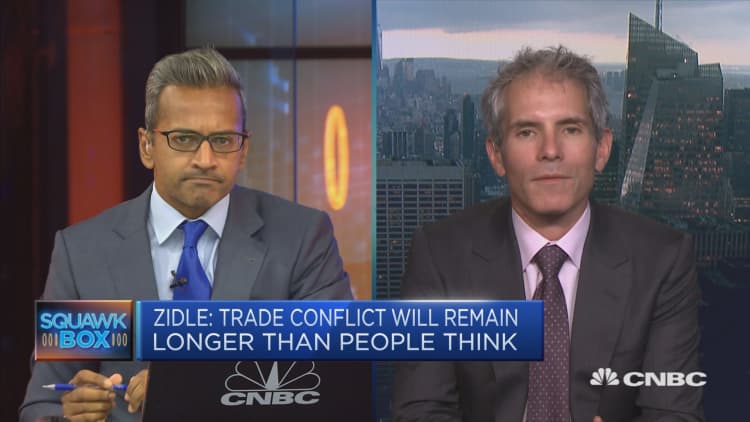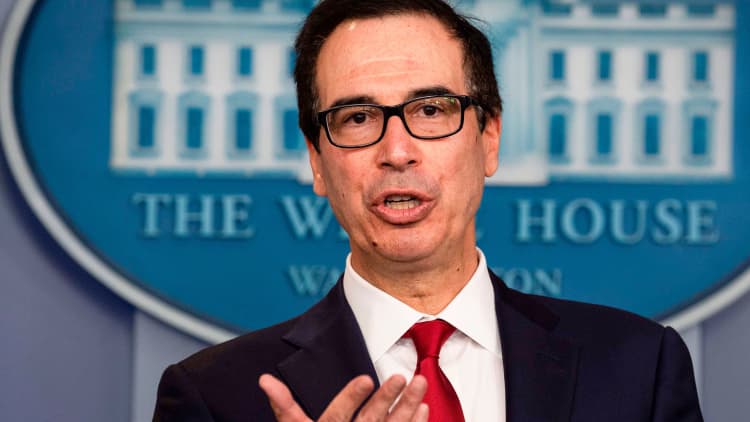
Stocks on Wall Street climbed higher this week due in part to increased hopes for a U.S.-China trade war resolution — but Blackstone's Joseph Zidle warned that investors might be too optimistic.
Zidle, chief investment strategist at the asset management firm, said the trade war will likely drag on much longer than what investors are currently expecting. That means the impact on the economy and financial markets could be "bigger than most people think," he said on Friday.
"The markets are really pricing in Goldilocks: they're pricing in more Fed cuts and some sort of positive resolution to trade. I just think that, at this point, sentiment is excessive," Zidle told CNBC's "Squawk Box."
"I think both the United States and China are preparing for a much longer, a prolonged and drawn out period of uncertainty," he added.
His comments came after the Dow Jones Industrial Average recorded its seventh straight day of gains on Thursday, while the S&P 500 and Nasdaq Composite climbed for the third consecutive day.
Global trade is really complicated, it's complex and it's intertwined ... The unintended consequences of trade wars and currency wars I think are hard to understand. My guess is they're going to be bigger than most people think.Joseph Zidlechief investment strategist, Blackstone
Investor sentiment was partly lifted by U.S. President Donald Trump's announcement late Wednesday that he will delay a planned tariff increase on Chinese goods. Before Trump's announcement, China unveiled plans to exempt 16 types of U.S. products from additional tariffs.
Trade war consequences
The U.S. and China have since the beginning of 2018 slapped tariffs on each other's goods worth billions of dollars. The trade war has hurt business sentiment and slowed down import and export activity globally.
The International Monetary Fund said on Thursday that tariffs imposed by the two countries could shave 0.8% off global economic output in 2020, with potentially more losses in the following years, according to a Reuters report. In response, U.S. Treasury Secretary Steven Mnuchin said he hasn't seen the new IMF forecast, but he doesn't expect the impact on America to be as significant, Reuters reported.

Zidle said the trade war could bring about "unintended consequences" that many may not be aware of right now. He explained that many companies have set up complex production chains that spread across a large number of countries. So, the exact impact of a trade war is difficult to quantify, he added.
In addition, Trump could still extend the trade war to other economies such as Europe and Mexico — which would put more pressure on financial markets, the strategist said.
"Global trade is really complicated, it's complex and it's intertwined," he said. "The unintended consequences of trade wars and currency wars I think are hard to understand. My guess is they're going to be bigger than most people think."


